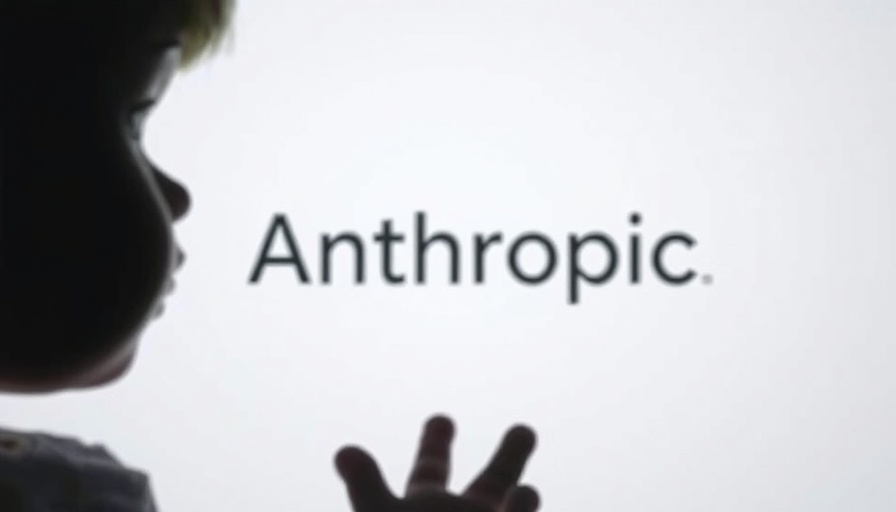
Anthropic's Legal Victory: A Closer Look at AI Copyrights
In a significant ruling, Anthropic has managed to secure an early victory in its ongoing legal battle with major music publishers, including Universal Music Group (UMG), Concord, and ABKCO. U.S. District Judge Eumi Lee rejected the publishers' request to prevent Anthropic from using copyrighted music lyrics to train its AI chatbot, Claude. This decision underscores the complexity of copyright law as it relates to artificial intelligence and the evolving tech landscape.
What Led to the Lawsuit?
The legal struggle began when Anthropic was accused of using lyrics from popular songs without permission, including tracks from artists like Beyoncé and the Rolling Stones. The music publishers argued that this unauthorized use infringed on their copyrights, damaging their licensing market. However, Judge Lee ruled that the publishers did not demonstrate irreparable harm caused by Anthropic’s actions, stating that their request was overly broad.
The Implications of Fair Use in AI Training
At the heart of the ongoing disputes regarding AI usage of copyrighted materials lies the concept of fair use. Tech enterprises like Anthropic and giants such as OpenAI assert that their systems operate under the fair use doctrine by employing copyrighted materials in a transformative way. This particular ruling did not directly address fair use, but it hints at its crucial role in determining the legality of AI training practices moving forward.
Broader Context: The Rising Tensions Between AI and Copyright Law
Anthropic's case is not an isolated incident. Numerous lawsuits have emerged as creators from various fields, including literature, art, and journalism, claim that their works are being exploited without due compensation. Not merely a matter of copyright infringement, these cases raise questions about how emerging technologies might reshape the future of creative industries.
Future Predictions: How Will AI and Copyright Interact?
The outcome of this case, along with others, has the potential to redefine the landscape of copyright law as it pertains to AI technology. Experts suggest that future legal frameworks will likely establish clearer guidelines for how AI developers can incorporate copyrighted material into their systems. This may foster innovation while ensuring that creators receive proper recognition and remuneration for their works.
Counterarguments: Publishers' Perspective on Protection
In their defense, the music publishers maintain confidence in their broader case against Anthropic. They argue that AI tools, like Claude, could undermine traditional licensing arrangements and impact their revenue streams. This raises important discussions about how creative works should be protected as technology progresses.
Practical Insights: Navigating AI Copyright Challenges
As companies continue to innovate with AI, understanding the implications of copyright law becomes paramount. Businesses venturing into AI must remain vigilant about existing laws and consider obtaining proper licenses when needed. Collaboration between tech firms and creative industries can also provide a more balanced approach that fosters innovation while respecting creators' rights.
What’s Next for Anthropic and the AI Sector?
The ruling marks a pivotal moment for Anthropic and indicates a potential precedent for other companies within the AI industry. As they navigate these legal waters, the technology landscape will continue to evolve, beckoning new challenges and opportunities for both AI developers and traditional content creators. The conversation about how AI should interact with creative works will likely persist, shaping policies and technological advancements.
In light of this ruling, stakeholders in both the music and tech industries should prepare for a landscape where copyright law and AI intersect, fostering dialogues that emphasize both innovation and protection.
 Add Row
Add Row  Add
Add 




 Add Row
Add Row  Add
Add 

Write A Comment